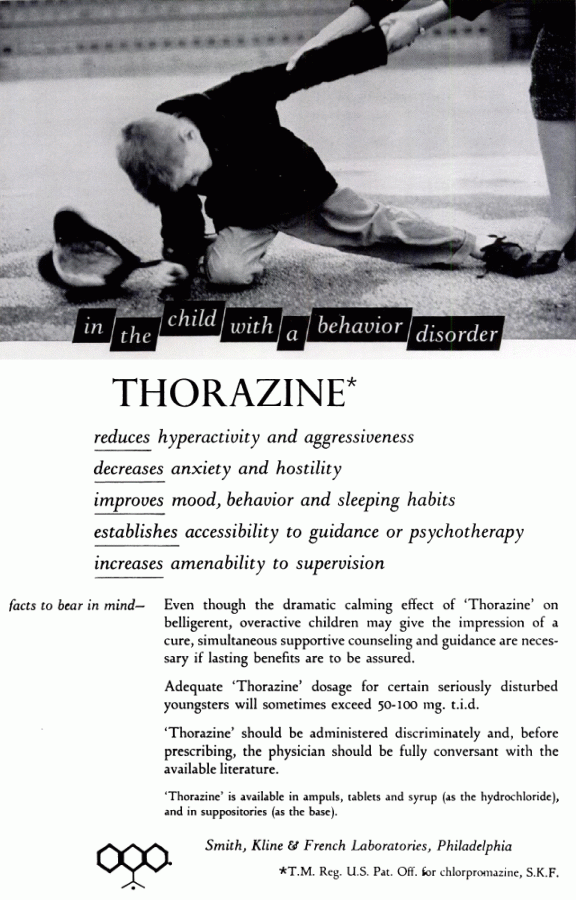
| Judith L. Rapoport, M.D. | ||
| Judith L. Rapoport M.D. is Chief of the Child Psychiatry Branch NIMH. She is a graduate of Harvard Medical School. She did her clinical and research training at the Massachusetts Mental Health Center (Boston), Children's Hospital (DC), and the Karolinska Hospital (Stockholm). Her research has focused on diagnosis in child psychiatry, Attention Deficit Hyperactivity Disorder and Obsessive Compulsive Disorder. Over the past decade, her group has been studying the clinical phenomenology, neurobiology and treatment of Childhood Onset Schizophrenia. She is an author or coauthor of over 300 scientific papers, a member of the Institute of Medicine, and a Fellow of the American Academy of Arts and Sciences. | ||
A brief clip of a recent webinar: |
Out of 361 kids initially screened as potential participants in a phenomenology, neurobiology and pharmacologic response study, 37% of them, a total of 132 kids were determined to have been incorrectly diagnosed with schizophrenia, and were excluded. 229 were presumed to have been accurately diagnosed with schizophrenia, and 228 of these were observed at an inpatient setting over a period of several weeks. Upon discharge, only 126 of the 228 were believed to have a diagnosis of schizophrenia, e.g. 34.9% of the original 361 kids who had been diagnosed and were screened for potential participation in this study by Rapoport and her colleagues had been (presumably) accurately diagnosed with schizophrenia....
Diagnostic disagreement is not simply a problem caused by a lack of inter-rater diagnostic agreement, it is more a problem caused by the lack of empirical data to support and validate the diagnostic criteria. The rate of diagnostic disagreement in this study effectively demonstrates how dangerous and unreliable the DSM is.

The current psychiatric treatment guidelines adopted by the APA and the AACAP are developed using a quasi-democratic process to achieve consensus. The first line treatment always recommended for a diagnosis of schizophrenia in professional guidelines, practice parameters, and treatment algorithms is neuroleptic drugs.
Expert opinions are not a valid substitute for empirical evidence; nonetheless, expert opinions are relied on (presumably) because the available evidence does not support the treatment recommendations promulgated through a political process in which psychiatrist's expert opinions are used to pseudo-validate the recommendations and used to justify the prolific prescription of teratogenic drugs, as a "necessary medical treatment" regardless of the therapeutic value to psychiatric patients who are labeled and targeted for psychiatric treatment...
watch on youtube the slides for Judith Rapoport's presentation
Here is what the NIMH website says about this project:
"Since 1990, the NIMH has been recruiting patients with onset of schizophrenia before age 13. Major goals are to study brain development during childhood and adolescence in early onset schizophrenia patients. Preliminary genetic studies show association with a number of schizophrenia risk genes such as GAD and NRG1, supporting continuity with the adult disorder. In addition, abnormal brain developmental trajectories in patients and their full healthy siblings are seen in relation to risk alleles for these genes. Treatment studies have shown the unique benefit of clozapine for treatment resistant patients. A new study of transient cortical electrical stimulation has begun for control of selected symptoms. (emphasis mine)
"Children and adolescents meeting DSM-IV criteria for schizophrenia are being recruited nationally for a study of the phenomenology, neurobiology and pharmacologic response of childhood onset schizophrenia. Over 300 medical records have been reviewed from which 320 patients and their families, appearing to meet DSM-IV criteria for schizophrenia with onset of psychosis prior to age 12, were screened in person. Of these 225 were hospitalized for medication free observation. A total of 112 received the diagnosis of schizophrenia at NIMH screening. A large number of children are receiving the diagnosis of schizophrenia improperly resulting in inappropriate treatment, even at academic centers. " here
Remember, according to Judith Rapoport's webinar and the slides she used, of the 361 kids screened for potential participation in the study, only 126 (34.9%) were believed to have schizophrenia at discharge.
Diagnostic disagreement is not simply a problem caused by a lack of inter-rater diagnostic agreement, it is more a problem caused by the lack of empirical data to support and validate the diagnostic criteria. The rate of diagnostic disagreement in this study effectively demonstrates how dangerous and unreliable the DSM is.

The current psychiatric treatment guidelines adopted by the APA and the AACAP are developed using a quasi-democratic process to achieve consensus. The first line treatment always recommended for a diagnosis of schizophrenia in professional guidelines, practice parameters, and treatment algorithms is neuroleptic drugs.
Expert opinions are not a valid substitute for empirical evidence; nonetheless, expert opinions are relied on (presumably) because the available evidence does not support the treatment recommendations promulgated through a political process in which psychiatrist's expert opinions are used to pseudo-validate the recommendations and used to justify the prolific prescription of teratogenic drugs, as a "necessary medical treatment" regardless of the therapeutic value to psychiatric patients who are labeled and targeted for psychiatric treatment...
Here is what the NIMH website says about this project:
"Since 1990, the NIMH has been recruiting patients with onset of schizophrenia before age 13. Major goals are to study brain development during childhood and adolescence in early onset schizophrenia patients. Preliminary genetic studies show association with a number of schizophrenia risk genes such as GAD and NRG1, supporting continuity with the adult disorder. In addition, abnormal brain developmental trajectories in patients and their full healthy siblings are seen in relation to risk alleles for these genes. Treatment studies have shown the unique benefit of clozapine for treatment resistant patients. A new study of transient cortical electrical stimulation has begun for control of selected symptoms. (emphasis mine)
"Children and adolescents meeting DSM-IV criteria for schizophrenia are being recruited nationally for a study of the phenomenology, neurobiology and pharmacologic response of childhood onset schizophrenia. Over 300 medical records have been reviewed from which 320 patients and their families, appearing to meet DSM-IV criteria for schizophrenia with onset of psychosis prior to age 12, were screened in person. Of these 225 were hospitalized for medication free observation. A total of 112 received the diagnosis of schizophrenia at NIMH screening. A large number of children are receiving the diagnosis of schizophrenia improperly resulting in inappropriate treatment, even at academic centers. " here
Remember, according to Judith Rapoport's webinar and the slides she used, of the 361 kids screened for potential participation in the study, only 126 (34.9%) were believed to have schizophrenia at discharge.
The lack of empirical validity means psychiatric diagnosis is unreliable; the fact that mental health professionals have police powers to detain people make psychiatric diagnosis and treatment a risky proposition. The risk of disability and premature fatality are inherent, unavoidable risks for people of all ages who take psychotropic drugs; children and adolescents are known to be have an even greater risk for experiencing adverse effects, including drug-induced fatality. These pertinent facts make Jeffrey Lieberman's claims utterly irresponsible; being without a factual basis, his claims are unethical.
via Hearing Voices Network:
via Intervoice:
Children Hearing Voices: What you need to know and what you can do
Free booklets for parents and supportersWhat you can do if your child tells you they are hearing voices
- Try not to over react, although you will be understandably worried, work hard not to communicate your anxiety to your child.
- Accept the reality of the voice experience for your child: Ask them about their voices, how long they have been hearing them, who or what they are, do they have names, what they say etc.
- Let your child know that lots of children hear voices and mostly they go away after a while.
- Even if the voices do not disappear your child can learn to live in harmony with his/her voices
- It is important to breakdown your child’s sense of isolation and differentness from other children. Your child is special, unusual perhaps, but normal.
- Find out if your child has any difficulties or problems that they are finding very hard to cope with and work on trying to fix these problems. Think back to when the voices first started, what was happening to your child when they first heard voices? When did the voices arise for the first time? Was there anything unusual or stressful that might have occurred?
- If you think you need outside help, find a therapist who is prepared to accept your child’s experience and work with your child in a systematic way to understanding and cope with their voices better.
- Be ready to listen to your child if they want to talk about their voices and use drawing, painting, acting and other creative ways to help them describe what is happening to them.
- Get on with your lives and try not to let the voice experience become the centre of your child’s life or your own.
- Most children who live well with their voices have supportive families living around them who accept the experience as part of who their child is. You can do this too!








